As Goes Los Angeles, Comes Nobody
"What if they gave an election and no one came?" That's a paraphrase of a war or anti-war cry of the 1960s. More than 40 years later in Los Angeles, the nation's second-largest city, the cliché came alive in reports of Tuesday's municipal election, where turnout has dropped to 16 percent, half the number of people who turned out for local elections only eight years ago.“What if they gave an election and no one came?” That’s a paraphrase of a war or anti-war cry of the 1960s. More than 40 years later in Los Angeles, the nation’s second-largest city, the cliché came alive in reports of last Tuesday’s municipal election, where turnout has dropped to 16 percent, half the number of people who turned out for local elections only eight years ago.
At my polling place, I walked in and found the ballot watchers reading books. They had already finished the newspapers — the folks there were old enough to read papers. And I was the only non-official there.
Granted, it was not the most exciting campaign in the city and the rest of the 88 jurisdictions in Los Angeles. But they were voting for mayor and other citywide officials, city council members, school board members, a big deal here, and at least one controversial ballot measure to raise the municipal sales tax by half a percentage point to 9.5 percent.
The sales tax, Proposition A, was designed to raise enough money to close the city’s budget deficit of $200 million and counting. Despite City Hall threats that voting “no” would force layoffs of police and firefighters and other critical city jobs, it was defeated by a 55 percent-to-45 percent margin. The leading mayoral candidates were all against the tax measure — publicly. Privately, they were probably praying for a “yes” vote. As in, “The voters made me do it.”
There were a lot of reasons thrown around for the record low turnout in what was about the most expensive municipal election in history. This was only the first round of municipal races, and a candidate had to win a majority to be actually elected. The voters and the top two candidates will get another chance in second-round voting on May 21. As for the sales tax defeat, it came only months after the same voters and others around the state narrowly approved a state proposition adding $30 billion in new revenues. Maybe it was voter fatigue.
Voter death, said the most popular of the Los Angeles Times’ columnists, Steve Lopez. His front-page headline was “LA’s Walking Dead.”
Here is part of what he had to say:
“On March 5, 2013, Los Angeles redefined apathy. … This is late-night TV joke territory, as in:
“‘Election officials were stunned in Los Angeles on Tuesday when 16 percent of the city’s voters cast ballots. They couldn’t believe that many people knew there was an election.'”
He went on, endorsing a much-discussed alternative, moving the municipal elections to the same date as presidential and congressional elections with their larger, if still appalling, voter turnouts. His paper’s editorial pages were appalled as well, declaring:
“On Monday, millions of Kenyan voters braved the possibility of violence to wait in mile-long lines beginning at dawn to cast ballots in their national election. Turnout, officials said, was tremendous.
“The next day in Los Angeles …” Well, you know where this is going.
Los Angeles is different. In Chicago, municipal election turnout averages 48 percent. In Philadelphia, it’s 44 percent. In San Francisco, it’s 41.
Ah, but they don’t have LA’s weather. Or television news, which ignores politics to focus on sunshine here, blizzards in the Midwest and East. Lopez says that if he ever runs for mayor he will paint “Believe in Steve” signs on a hijacked car and then lead police in a slow-motion chase on the freeways. That’s what stations here cover live from helicopters. No money left for anything else. It’s a joke. If non-newspaper readers know what’s going on, it must be because they are listening to public radio.
“LApathy” here knows no bounds. For the record, the candidates for mayor who will face each other are a councilman, Eric Garcetti, and the city controller, Wendy Greuel. Their positions on issues, rarely mentioned, are about the same. Aside from gender, the greatest difference between them is that the biggest public employee unions are for the lady — and those unions do get out their member voters, from city janitors to schoolteachers. In fact, those unions and their pension plans are pretty much the government of the second city.
© 2013 UNIVERSAL UCLICK
Your support matters…Independent journalism is under threat and overshadowed by heavily funded mainstream media.
You can help level the playing field. Become a member.
Your tax-deductible contribution keeps us digging beneath the headlines to give you thought-provoking, investigative reporting and analysis that unearths what's really happening- without compromise.
Give today to support our courageous, independent journalists.
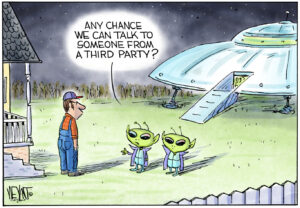
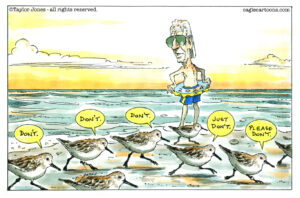

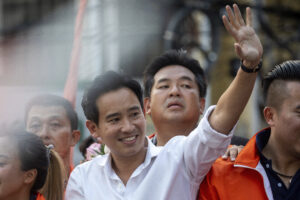
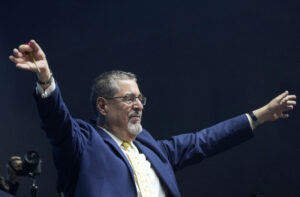
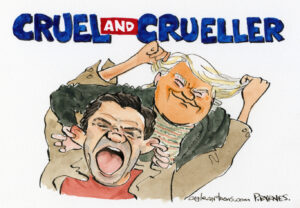
You need to be a supporter to comment.
There are currently no responses to this article.
Be the first to respond.